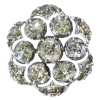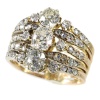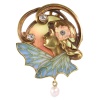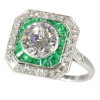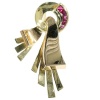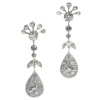Nous offrons des facilités de paiement pour le bijou de vos rêves. Demandez nous les détails. Expédition assuré gratuite !
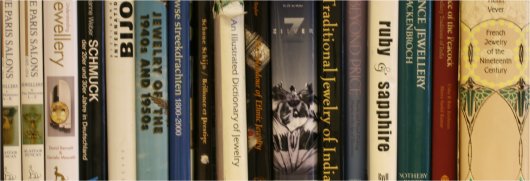
Antique jewelry glossary
Welcome to our extensive antique jewelry glossary with around 1,500 jewelry related entries.If you feel you are missing an explanation, feel free to let us know and we will add it.
A - B - C - D - E - F - G - H - I - J - K - L - M - N - O - P - Q - R - S - T - U - V - W - X - Y - Z all
Synthetic ruby
A synthetic gemstone resembling the natural ruby. The first synthetic rubies were attempted by Marc Gaudin in 1837, and by 1877 thin platy crystals of ruby were produced by the French chemists Edmond Frémy and Charles Feil; later Frémy and Auguste Verneuil succeeded in producing rubies large enough to be rose cut, but too small for general use as jewelry. A so-called reconstructed stone having the appearance of a ruby was produced c. 1885. Successful results from the Verneuil Furnace process, using as a colouring agent oxide of chromium, were published in 1904, and today synthetic rubies (including the synthetic pigeon's-blood ruby) are commercially produced by modifications of that method, and also by the advanced hydrothermal process and flux fusion process. Synthetic rubies can be distinguished by the often 'too perfect' colour, by curved rather than straight striae, and by the typical internal bubbles, and sometimes by ultraviolet and X-ray tests.
From: An Illustrated Dictionary of Jewelry, autor: Harold Newman, publishers: Thames and Hudson



